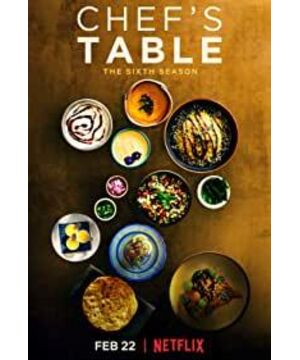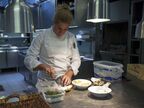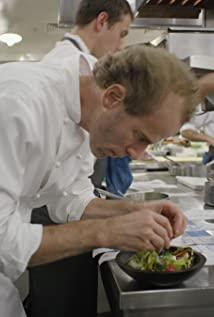No matter what happens, I can do this.
A few years ago I lived in a small county town in Hainan, where I liked to buy and cook by myself.
Sometimes when the sun is not warm, I go out early in the morning with cloth bags, net pockets, and lunch boxes to buy vegetables in the morning market. Sometimes after breakfast, I walked slowly to the vegetable market in the town, where there are more varieties, and I would eat a refreshing meal to relieve the heat on the way. The lunch box is used to hold eggs, dried tofu, cooked food, and vegetables are put into cloth bags or net pockets. Over time, the vendors also remembered me, a strange mainlander who never used plastic bags.
When I get home, I usually sweat profusely. After drying the sweat, I started to wash the vegetables, choose the vegetables, and then put some of them in the refrigerator, and some of them were done right away. When cooking, I will enter a state of mindfulness, quietly cleaning, cutting, stirring, cooking, stir-frying, and plattering, even if it is just simple stewed rice, egg cakes, fried bean curd with green vegetables, and cold cucumbers. Excited, there is a kind of practical joy of do-it-yourself food and clothing.
When the meal is ready, I will watch a certain food documentary while eating. Although my cooking skills are limited, it does not prevent me from appreciating the cuisines and unique cooking methods from all over the world, as well as the people and stories behind the cuisines.
"Chef's Table" was the next meal at that time. After watching a lot, I feel that the development trajectories of several chefs are very similar: I have been fascinated by my ears and eyes since I was a child, fell in love with cooking, entered a chef school for professional training when I grew up, entered a famous restaurant after graduation to learn art, and then went all over the world to find inspiration. Then they run their own restaurants and continue to innovate and take risks... After they cross the skills and become their own faction, they are all opposed to fixed menus and like to constantly update dishes according to ingredients and seasons, but behind them are their inheritance and digestion of their country and local culinary traditions. . If you want to stand for a long time in an industry, and maintain passion and vitality, you must seek innovation and change on the basis of absorbing tradition. In the final analysis, the highest level of any profession is all about values and spirituality. The chef's experience, personality, preferences... Everything will be presented in the food cooked by TA. A dish or a brew of tea is like a book or a painting, bringing you a unique life experience, stimulating your feelings, activating your imagination, and shaking your heart.
The protagonist of the fourth episode of the first season is Niki Nakayama, a Japanese-American chef living in Los Angeles. She grew up in a patriarchal Japanese family. Her father was strict with her children, and her mother liked her brother very much and always demeaned her daughter, intentionally or unintentionally. Niki has never admitted defeat since he was a child, always trying to prove to his parents that he is no worse than a boy.
After graduating from chef school, she went to study in local restaurants in Los Angeles and in Japan to absorb various experiences. In Japan, she encountered and was drawn to Kaiseki cuisine, which is philosophically and aesthetically derived from the tea ceremony. Kaiseki cuisine selects local and seasonal ingredients, respects the natural growth process of ingredients, pays attention to the freshness and original flavor of ingredients, and brings multiple aesthetic experiences such as taste, vision and smell to diners.
Back in Los Angeles, Niki planned to open her own restaurant, and her family urged her to open a common sushi restaurant, since sushi is as popular as ramen. Inexperienced at the time, she followed the advice of her family and opened a sushi restaurant with the flow, which was also recognized by customers and family members. But she's not happy, because sushi is about the skill and consistency of craftsmanship - perfect rice, perfect temperature, perfect texture, and it's hard for a chef to get too creative and individual.
Over time, Niki was deeply restrained, felt useless, and gradually lost his passion for cooking. In the end she sold the restaurant, intending to live a relaxed but also unmotivated life.
One day, Niki was driving while listening to the radio and it mentioned "Chef's Table". She was so excited that she decided to open a restaurant that made dishes according to her own ideas. She did not cater or compromise, and integrated the philosophy of Kaiseki with her personal characteristics, which fully reflected her understanding of cooking.
The suppression of individuality in Japanese culture, coupled with the contempt for female identity, makes Niki unable to fully be herself in reality. However, cooking gave her room to release, she could rebel, resist, shout, improvise, and run wild. When she devotes herself to creating dishes one after another, the whole person appears confident, joyful, calm, calm, and fully enjoys the moment. She has also moved beyond the stage of proving herself to others to exploring and creating without restraint.
Fortunately, Niki also has a female companion who fights alongside her. They are colleagues and friends who support and appreciate each other. I have to sigh, the feeling of two women together is really beautiful! Although I don't have the mood and energy to be in love, I would love to have a female partner if I have the chance.
View more about Chef's Table reviews











